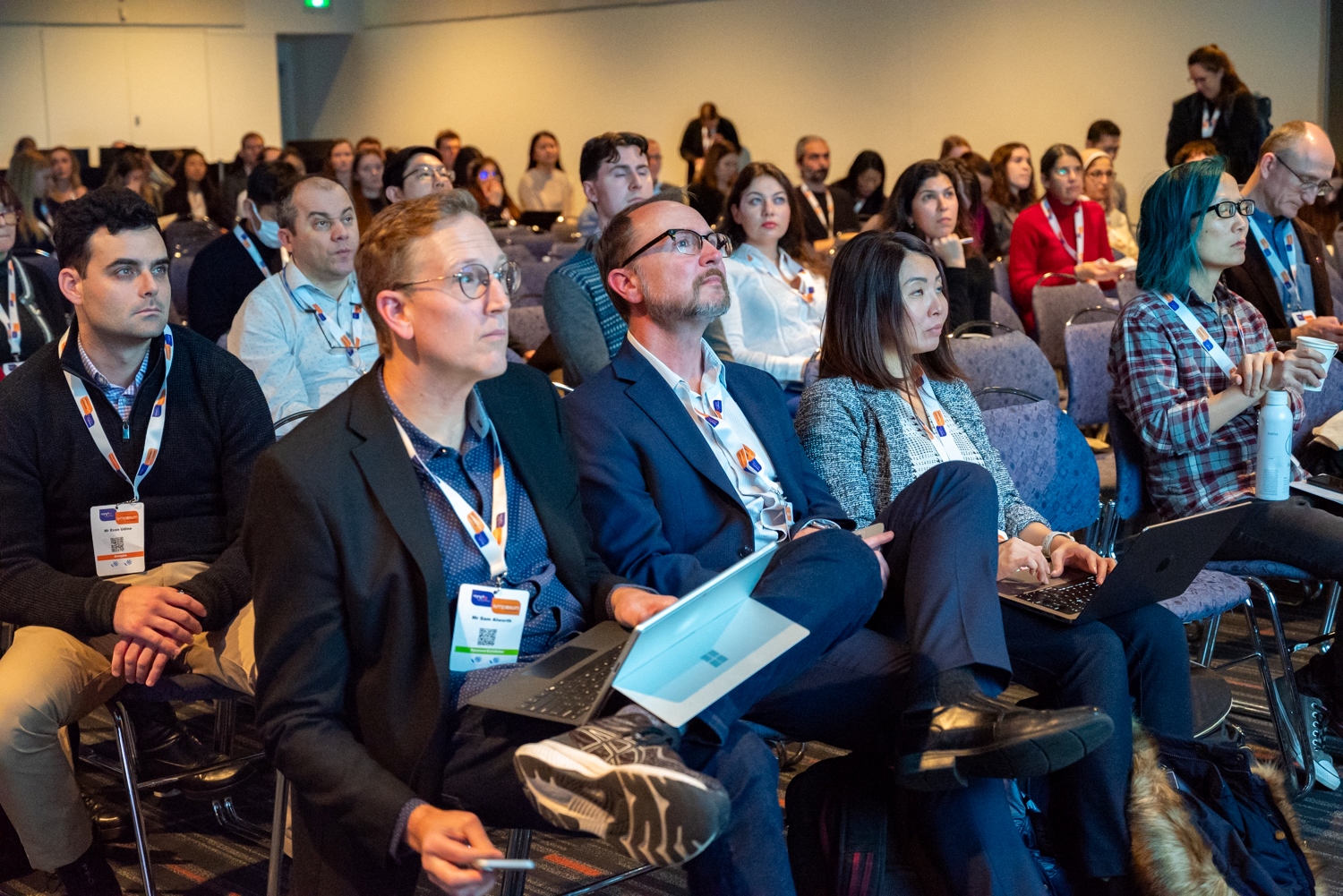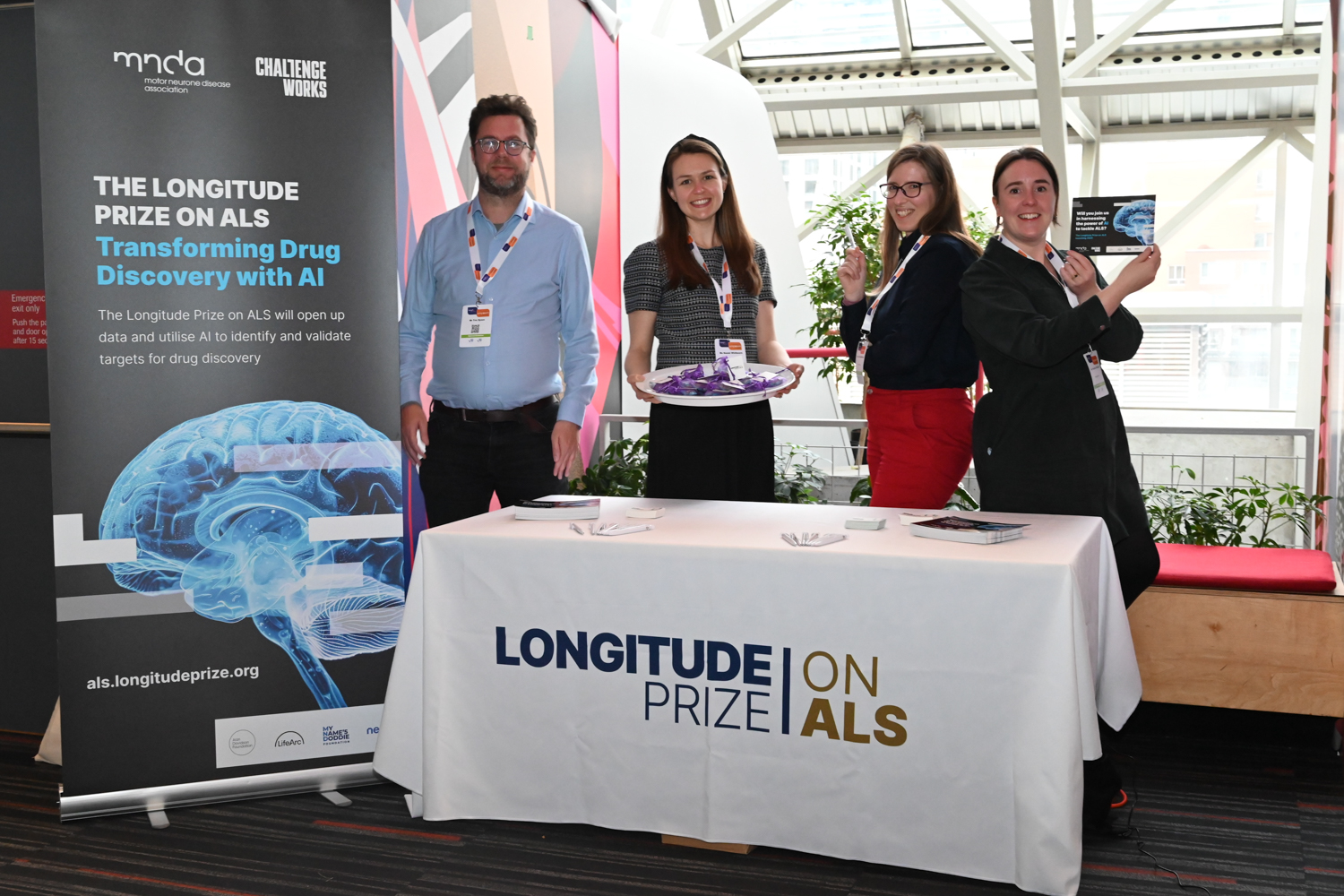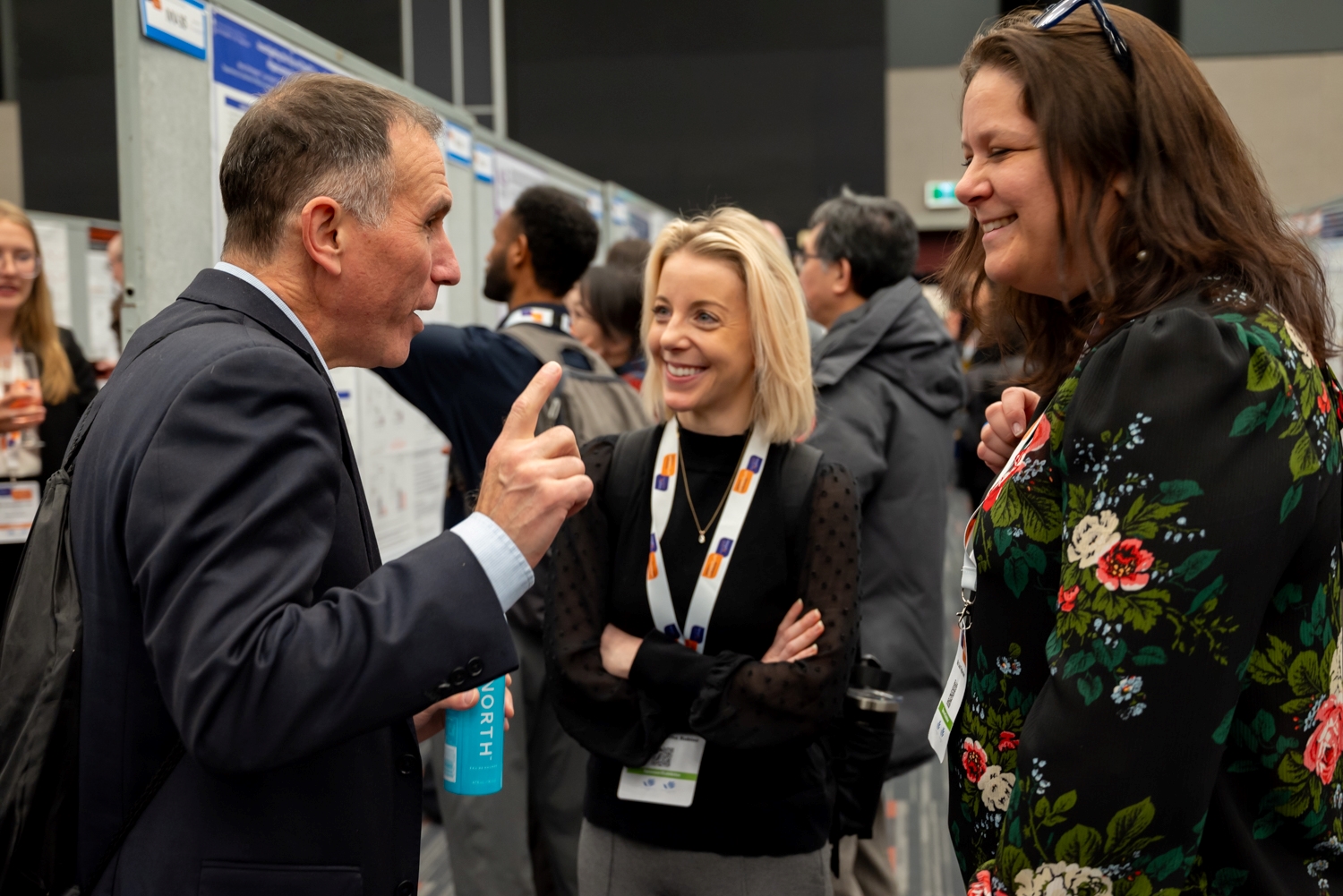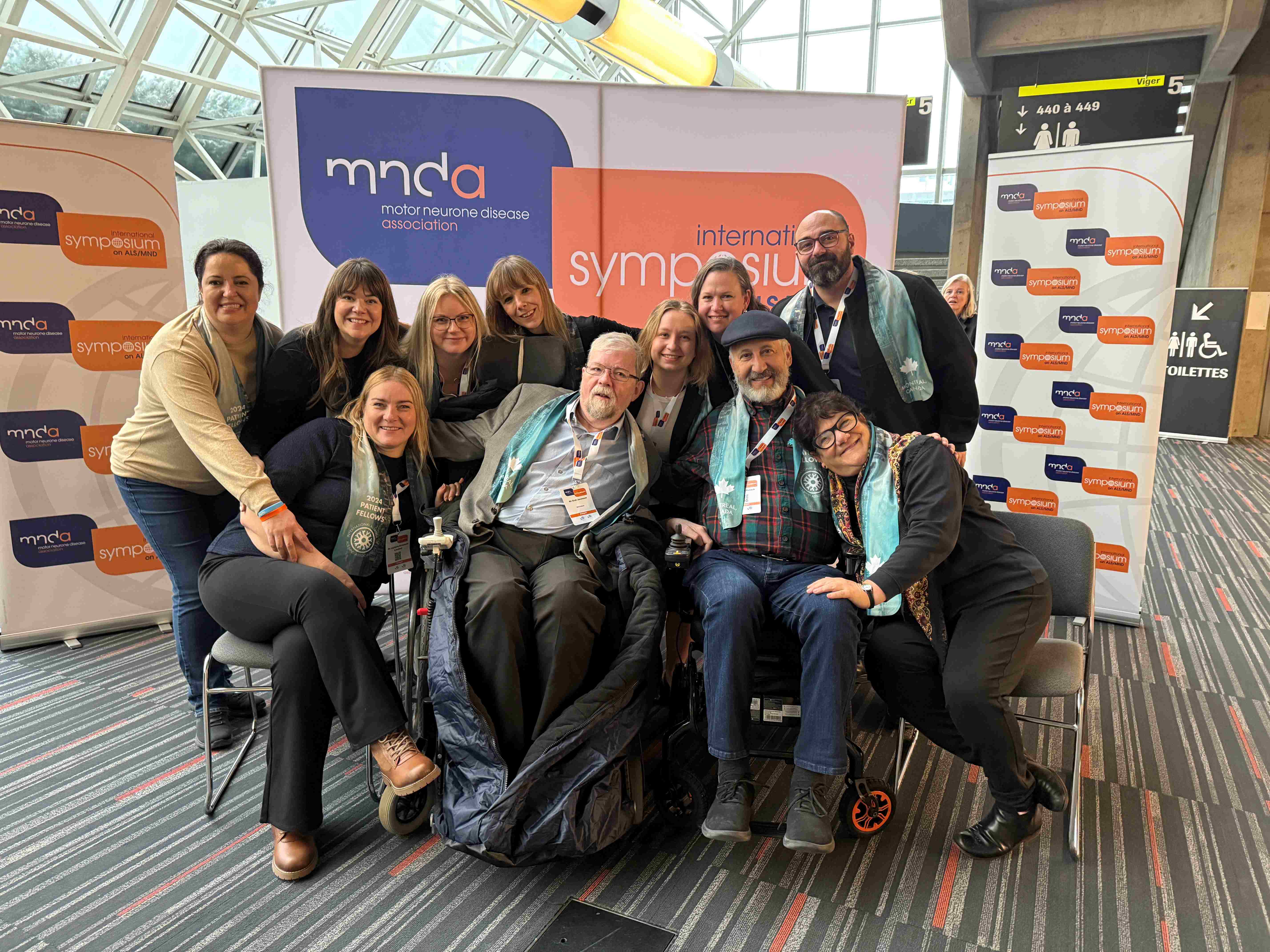11 December 2024 News
More than 1500 people heard the latest advances in motor neurone disease (MND) research at the MND Association’s International Symposium on ALS/MND, which took place in Montreal, Canada from 6-8 December.
The annual event is the largest medical and scientific conference on MND and attracted delegates from 48 countries, with 80% of the number attending in person. With a shared passion for MND research and a commitment to ultimately finding a cure, clinicians, researchers, health and social care professionals and patient fellows engaged in discussion and debate, formed new alliances, and shared updates with their counterparts across the world.
Stephen Hawking Memorial Lecture
As in previous years, the Symposium kicked off with the Stephen Hawking Memorial Lecture, which plays an important role in generating new ideas and collaborations for MND research. The researcher delivering this lecture works outside of the MND field and shares their work, in the hope that it helps to spark new ideas for MND research.
The lecture given this year was given by Professor Timothy Caulfield, Canada Research Chair in Health Law and Policy, a professor in the Faculty of Law and the School of Public Health, and the Research Director of the Health Law Institute at the University of Alberta. He looked at some of the health myths that have arisen from popular culture and discussed how mis-information about health can easily spread. Specifically, he went on to suggest ways we can look at health information more critically and considered how we can prevent mis-information from spreading within communities.
Announcement of Longitude Prize partnership
The Symposium also saw the announcement of a significant partnership between the MND Association and Challenge Works in the development of the Longitude Prize on ALS, with the Association as the principal funder.
Challenge prizes give researchers an equal chance regardless of previous expertise, enabling the most promising ideas to progress with funding and expert support. We caught up with founder and managing director of Challenge Works, Tris Dyson, who is living with MND.
The Longitude Prize for ALS is a search for target, novel biology from which we can develop drugs that will work for people with ALS – using the power of AI and Big Data. This is a really fantastic moment to announce that the Longitude Prize will be coming in 2025. The Symposium is one of the great gatherings of academics who are researching the disease and trying to understand this space and the MND Association is our principal funder. The MND Association is the most significant organisation that represents the research community across Europe and around the world. Having them as our principal funder matters because of the credibility and the support and the networks of expertise that it provides.
Tris Dyson, founder and managing director, Challenge Works
Poster sessions
Once again, the poster sessions were a hive of activity with over 400 posters on display, each demonstrating a special area of MND research with topics ranging from healthcare to biomarkers to clinical trials. Presenters ranged from students to fellows right through to leading clinicians and healthcare professionals. These sessions gave delegates a chance to both showcase their work and to learn about the work of their peers and established pioneers in the field.
This is my second time attending the Symposium. It’s a fantastic opportunity to meet other people in the field, to discuss collaborative research and also get a feel for where ALS/MND research is going. We can see and hear things that might both inform the research we’re doing and we can spread our ideas and talk about the ongoing status of our own research.
Caitlin Henna, Umeå University, Sweden
What keeps me coming back is this wonderful combination of the science and the clinical research that’s being shared on this international platform. It’s a wonderful place to meet international researchers.
Dr Rachel Tan, University of Sydney
This is a fantastic conference for me, I particularly like to discuss new research and ideas. It’s all about meeting fellow researchers in the field and trying to come up with new ideas.
Dr Emmet Costello, Research Fellow at Trinity College Dublin
Other highlights
The importance of collaboration cannot be overstated. Symposium speaker Professor Rebecca Gould, University College London, gave a presentation on the results of her research study into experiences of a type of psychological therapy, Acceptance and Commitment Therapy (ACT), from the perspectives of people living with MND and therapists.
For me, the best thing about being here is being able to connect with people who are really interested in how we can support people with MND to find ways to live their lives in ways important to them alongside the difficulties they are experiencing. It’s been fantastic!
Professor Rebecca Gould, University College London
Each year, we welcome a group of Patient Fellows with lived experience whose interaction adds a vital dimension to the meeting, generating new ideas and perspectives, and reminding the research community of the need for urgency and focus in the drive to turn knowledge into treatments.
I like being at the Symposium learning new things we can take back to try to get better services in Iceland for MND patients. We are also getting closer to a solution on how to cure MND.
Gisli Jonasson Patient Fellow, Iceland
The content of all the talks presented demonstrated the increased pace of discovery and highlighted the sheer volume of important research findings that are moving us ever closer to effective treatments for MND.
Our sincere thanks to all the presenters, speakers, volunteers and delegates for making this such a productive and engaging event.
Preparations are already underway for next year’s 36th International Symposium on ALS/MND which will be held in San Diego, USA.



